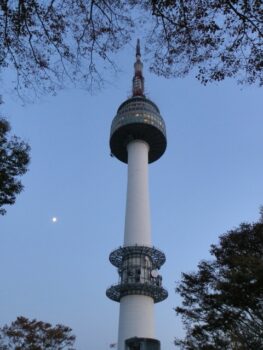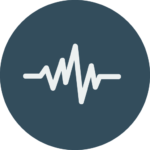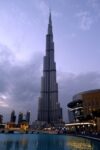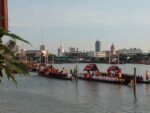Professional Korean Interpreters & Translators Worldwide – Video Remote Interpreters are also available

Korean Translation & Interpreting Services Worldwide – English to Korean, Korean to English as well as multiple other languages.
We provide Korean translation and interpreting services for all industries and occasions in locations across the globe.
If you are looking for accurate and reliable Korean language services to facilitate your business activities, TJC Global can help.
Our Korean translators and interpreters are a team of highly trained experts who understand the nuances and complexities of the languages they work with. We believe linguistic excellence should go hand in hand with an in-depth knowledge of subject matter and for this reason, we always endeavour to provide Korean translators and interpreters with a background or qualification in the given field.
TJC’s professional Korean interpreters and translators can deliver high-quality interpreting and translation services for a wide variety of industries, including the manufacturing, legal, medical, technical, industrial, engineering, environmental and energy and renewable energy sectors.
Our network of Korean interpreters also includes certified interpreters for international conferences, court interpreters and business meeting interpreters. We also cover all types of technical discussions; also US depositions, arbitrations and hearings as well as all manner of other events and meetings in major industries.

Korean Arbitration Interpreters
Our arbitration interpreters can assist those seeking an alternative to litigation. Read more…
Korean Business Meeting Interpreters
Our Korean business meeting interpreters can assist you in negotiations, discussions and collaborations. Read more…
Korean Conference Interpreters
At TJC Global, we have a network of Korean certified conference interpreters for multi-national conferences of all natures. Read more…

Korean Court Interpreters
Our Korean court interpreters are familiar with the format, conventions, procedures and requirements of court interpreting. Read more…

Korean Deposition Interpreters
We can provide specialist deposition interpreters for witness testimonials, as is common in the US and Canada. Read more.
Korean Legal Interpreters
TJC Global’s Korean legal interpreters can cover court cases, hearings, and tribunals. Read more…
Korean Legal Translators
We cover a variety of legal materials and documents, including but not limited to letters, legal documents, contracts, summonses, evidentiary documents, statements, patents, and more.
Korean Medical Interpreters
Our medical interpreters are familiar with medical terminology, ensuring they deliver informed, precise, and efficient interpretation in this highly specialised sector.

Korean Medical Translation
Our Korean medical translators are all native speakers of your target language and often hold a degree or certificate in the medical sciences.

Korean Technical Translation
Our technical interpreters can cover assignments in a broad range of industries; including aerospace, motoring, manufacturing and civil engineering. Read more…
Why choose TJC Global’s Korean Interpreters?
- Our native Korean interpreters and translators combine expertise in their chosen industry with an in depth knowledge of the languages at hand.
- We can provide Korean language experts in highly specialist fields, ranging from multiple branches of engineering to marketing, from pharmaceuticals and medicine to advanced legal issues.
- All our Korean interpreters and translators have many years experience in their field, and professional qualifications to match, ensuring language support of the highest-quality.
- We have earned the trust of hundreds of local, national and international companies and organisations. For more information regarding our previous clients, please click here.
- We always provide a reliable and confidential service.
- Our Korean translators can achieve fast turnaround times for translation and thorough proofreading.
- We realise the importance of cultural business knowledge so our services are set up not only to translate verbal communication, but to help interpret cultural differences and support our clients when it comes to the subtleties of language.
Locations for Korean Translation & Interpreting Services Worldwide
Our Korean interpreters cover locations across the globe. For some of the most popular cities, we cover, please see below. For other countries and cities, our Korean interpreters cover, please click here to see our list of locations for Korean interpreters worldwide. If the location you require is not listed here, chances are we will still cover it – please contact us directly.
About Korean for Korean Translation & Interpreting Services
Korean is the official language used in both North and South Korea. Its genealogical classification is widely disputed and many linguists and language historians class Korean as a ‘language isolate’ (a natural language with no ‘genetic’ relationship to any other language, which has been cultivated in an isolated environment), others believe it belongs to the Altaic language family. In South Korea, the language is most often called Hangungmal or more formally, Hangugeo or Gugeo (literally “national language”). In North Korea and Yanbian Korean Autonomous Prefecture in China, the language is most often called “Chosŏnmal” or more formally, “Chosŏnŏ”. Korean people in the former USSR, who refer to themselves as Koryo-saram, call the language “Goryeomal”.
Just like any other nation, South Korea has its own business etiquette. See our Doing Business in Korea Page to find out more.
What forms of interpreter services can TJC Global provide?

Video/videoconference interpreting: (Video remote interpreting is also available) TJC provides language interpreting services to support events such as business meetings, conferences, legal/court/arbitration/litigation, and other online business interactions in the industry.
Participants can communicate via video or voice calls using computers, laptops, smartphones, tablets, etc. These can be recorded should you wish to take minutes. Our professionally qualified interpreters can join your online virtual meeting, event, or proceeding, for example, and interpret remotely in the language pairing you require to facilitate smooth communication between all parties. They also provide relay interpreting.

Telephone/teleconference interpreting is a practical way to bridge any language barriers. The interpreter is either located remotely (away from either party) or is with one of the parties. In both cases, they deliver interpreting services through telephone conferencing.
Telephone interpretation is helpful for clients who cannot travel to their counterparts’ countries but still wish to hold business discussions or communicate progress updates. At TJC Global, we are pleased to provide professionally qualified interpreters in almost any selected language combination.
Simultaneous & Consecutive interpreting

Simultaneous interpreting (also available with Video Remote Interpretation (VRI))
is used for international conferences, critical business discussions, seminars & symposiums. In this case, two to three interpreters are usually situated in a booth, away from the audience, and take turns to interpret at high speed, changing over every 15-20 minutes to avoid fatigue and the lack of concentration, which affect the quality of interpretation.
The interpreters listen to the speaker’s message using headsets and repeat it immediately (practically “simultaneously”) in the target language to benefit relevant audience members. They also provide relay interpreting, which is helpful if the speakers give presentations in several languages.

Consecutive interpreting (also available with Video Remote Interpretation (VRI)) is the most common type. It is used for business discussions, negotiations, contract exchanges, commercial, legal and technical meetings, medical or court hearings, or on-site inspections or audits. The interpreter listens to the speaker, often making notes, and later delivers the meaning in the target language.
The interpreter may wait until a pause or the end, at which point they deliver a translation relatively quickly. Consecutive interpreting may also be used at conferences for panel discussions, Q&A sessions or private discussions between parties – at a stand or elsewhere.
What to do next?
Please use the Quick Quote system above for a quote for interpreting, translation services or a related enquiry.
If you would like more information about our language services, please contact us.




























